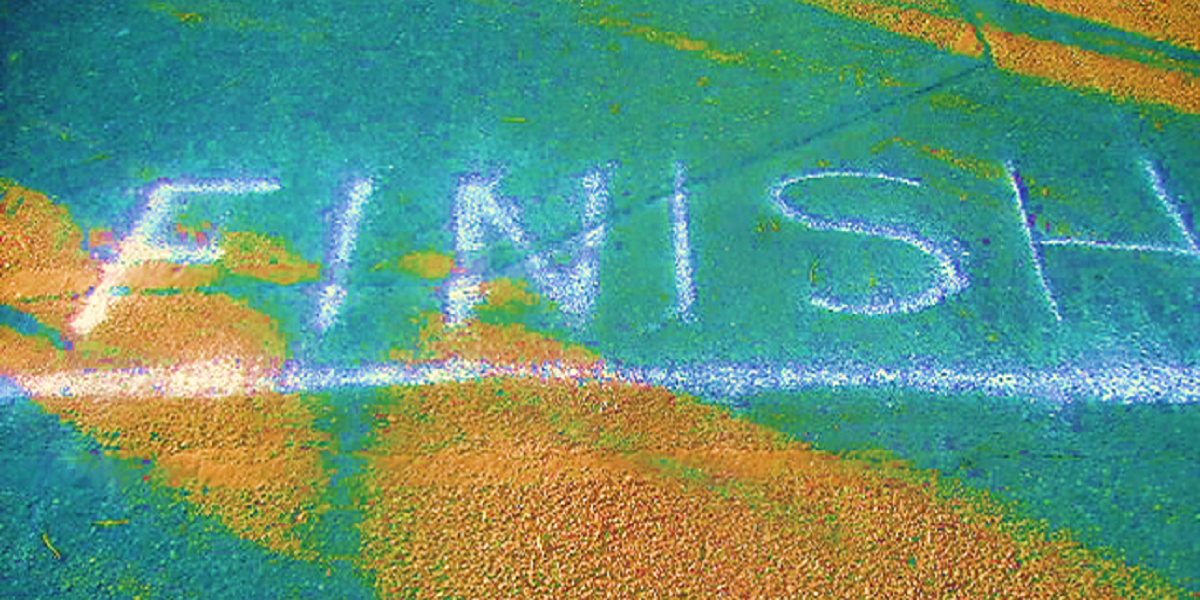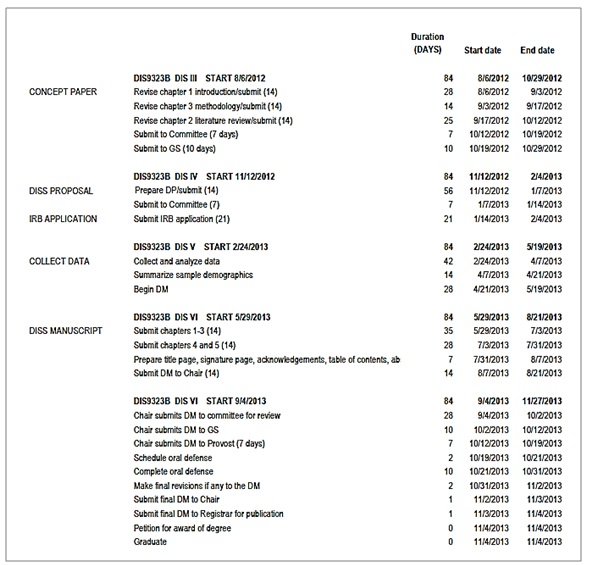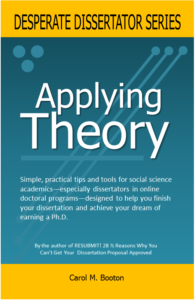It’s that time of year. You know what time I mean: The time when desperate dissertators swill coffee, scarf down holiday cookies, and hunker over their computers, trying to write as much as they can on their dissertation proposals or manuscripts before it’s time to go back to work.
Are you in a reflective mood? Maybe you feel pensive, a little melancholy, about the progress you’ve made this year. Maybe you feel chipper and optimistic about the great things to come. The end of the year is a fitting time to reflect on progress made in our scholarly endeavors and set our intentions for the future. I’m doing a little reflecting myself as we welcome in a new year.
A time to reflect on our scholarly progress
Are you making progress on the milestones in your Ph.D. program? It can be slow-going, I know. During most of the eight years of graduate school, I taught at a career college. Monday through Thursday, I taught morning classes, drove home for lunch, and drove back to campus for night classes. Fridays were for grading and prepping. I spent the rest of the weekend writing.
Faculty and students had a week off during the summer and a week for the winter holidays. Often we worked on Christmas Eve, right up to 10:20 p.m.
With such a haphazard writing schedule, I struggled to finish my dissertation proposal. Sometimes I felt I was making progress; other times, I felt I was writing in circles. Each time I uploaded my latest debacle to the course room, I would have a couple weeks to pick up the pieces of the rest of my life while I waited for my Chair to rip my paper to shreds.
Gradually, I morphed from student to scholar. After eight long, painful years, I defended the dissertation and earned the Ph.D. In the process, I learned how to write a lot.
Now, six years later, my writing projects are different but my goals are similar. I still have a lot to do. However, without the structure and discipline of a Ph.D. program, I have to rely on myself for motivation.
Reflecting on the past year, I feel as though I’ve been busy. What was I working on all year? I’m sure I did something! New Year’s Eve is a good time to stop and write a list.
- I published the second book in the Desperate Dissertator Series. Aligning the Elements, seems to be finding a following. I guess I’m not the only one confounded by this challenging topic.
- The article about rich pictures I published with The Qualitative Report at the end of 2018 has had 434 downloads this year. People like anything with pictures.
- I published two articles (rants, really) with Medium on my favorite topic of for-profit higher education.
- I made time for nonscholarly writing as well. I wrote a novel and finished a memoir, both of which I hope to publish in 2020.
- I dusted off my teaching persona. I taught business classes to artists to help them bring their art into the world.
A time to set intentions for the future
Speaking of hope, now is the time to set our intentions for the future. I resist this endeavor mightily. In the past, my intentions have rarely been fulfilled. Yipes, look how I just used passive voice to describe my failure, as if I had nothing to do with it, as if some external force has repeatedly failed to “fulfill” my intentions. That bit of writing points out the vagueness of passive voice, as well as the problem with my goal-setting.
I think my intentions evaporated by February every year for three reasons: my goals were too broad, I wanted to be perfect, and I let my thoughts and feelings get in my way.
My goals were too broad
I failed to identify specific actions I could take to achieve my goals. Now, instead of setting an intention to “write a journal article,” I break the goal into small actions and I put them on my calendar. To write a journal article is my overarching objective, but to achieve the objective, I define the steps I need to take to get there:
- research journals
- choose one journal
- identify the journal guidelines
- write my research questions
- write an outline of the article
- gather current research
- prepare the list of references
- identify data sources
- conduct the analysis
- write up the results
- write the discussion
- write the introduction
- submit to the journal
I wanted to be perfect
I fell into the trap of perfectionism. Of course, we all want what we write to be perfect the moment it flows from our brain to the page. If only! Even on a good day (when I’m well-rested, alert, and enthusiastic about writing), I rarely get it right. Human endeavors are fraught with imperfections. I’m not exempt.
During the past year, I accepted the fact that perfection is unattainable. I stopped obsessing over every little thing and focused on getting things done. It worked!
If you find yourself repeatedly editing the same assignment, or not writing at all, stop for a moment and do an internal check to see if a desire for perfection might be part of the cause. Nobody expects dissertators to be perfect. Some Chairs and universities set stringent guidelines, rules, and expectations, which we do our best to meet. However, the truth is, the dissertation is the beginning of our research careers, not the culmination. Since I graduated, I’ve learned a lot about writing, editing, and conducting research. You will, too. In the meantime, it doesn’t have to be perfect. It just has to be done.
I let thoughts and feelings hinder my progress
Like most humans, I have thoughts and feelings about many things. This past year, I have been honing the idea that my thoughts and feelings are superfluous to accomplishing my goals. Don’t get me wrong: I don’t think it’s possible for us to suppress all thoughts and feelings, nor do I suggest we try. However, sometimes I let my thoughts and feelings hinder my ability and willingness to take action. Therein lies my downfall.
Do you get trapped in negative thoughts? Do you let your feelings overwhelm you? I have come to believe it doesn’t really matter what we think and feel. The Universe doesn’t respond to our thoughts and feelings. It only responds to what we do. Our actions move us closer to our goals.
It seems like a no-brainer, I know. I’m a slow learner. I’m also a moper and a complainer. Unfortunately, not much gets done when I mope or complain. I can waste a lot of time complaining: not enough time, not enough money, no one understands, oh woe is me.
This past year, I’ve been experimenting with a new approach. I write out my thoughts and feelings about my project before I sit down to work. I do my whining and ranting on paper. Then I set it aside and get busy. When thoughts and feelings interrupt me (e.g., this will never work, this is stupid, I’m such a terrible writer, I’m hungry, where’s my cat), I drop them into my mental “do later” bucket and carry on with my work. I won’t say I’m always successful. Sometimes I have to take a nap. However, this past year, I’ve accomplished much more than I thought I would. That’s progress.
My hope for you
I hope you find some good writing time this winter. If not, I hope you make some time to write, good or not. Writing a few paragraphs is better than writing zero paragraphs. Put your writing time on your calendar. Make a date with yourself. Remember, it doesn’t have to be perfect. It just has to be done. The world needs your contribution. Please don’t give up.
I wish you all the best for a happy, healthy, productive new year.
Sources
Booton, C. M. (2018). Using rich pictures to verify, contradict, or enhance verbal data. The Qualitative Report, 23(11), 2835-2849. Retrieved from https://nsuworks.nova.edu/tqr/vol23/iss11/13
Booton, C. M. (2019). Aligning the elements [Desperate Dissertator Series, No. 2]. Portland, OR: Crossline Press. ISBN 978-1099364761.
Booton, C. M. (2019, July 5). R.I.P. Gainful employment rule. Medium. https://medium.com/@carolbooton/r-i-p-gainful-employment-rule-11115f38f33f
Booton, C. M. (2019, March 16). Friends don’t let friends enroll at for-profit colleges. Medium. https://medium.com/@carolbooton/friends-dont-let-friends-enroll-at-for-profit-colleges-4445a70ca12b









